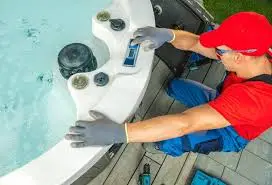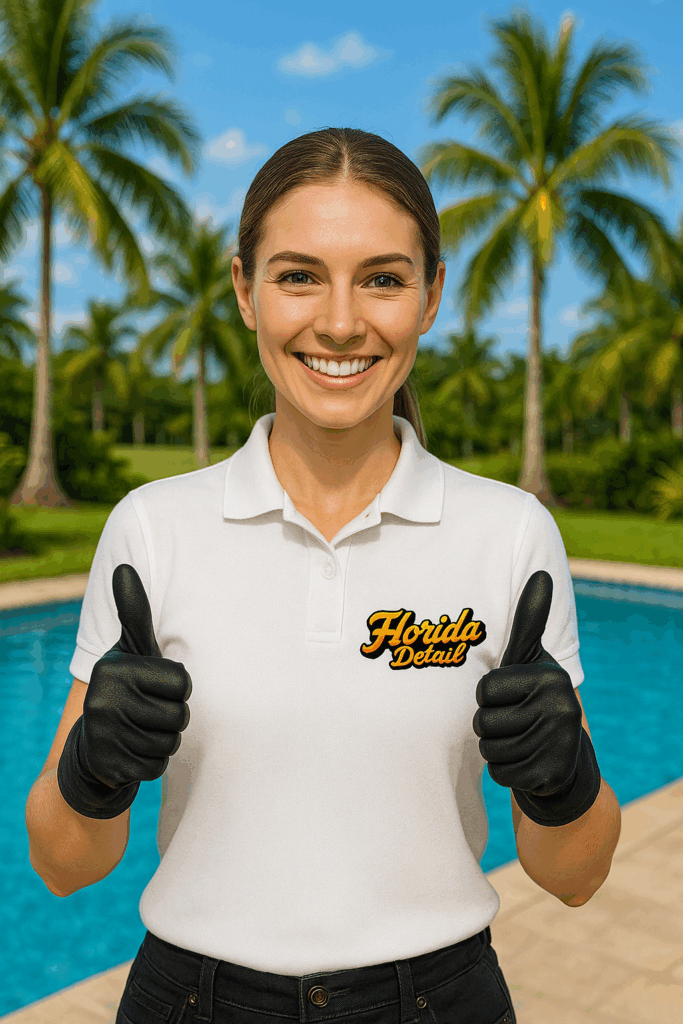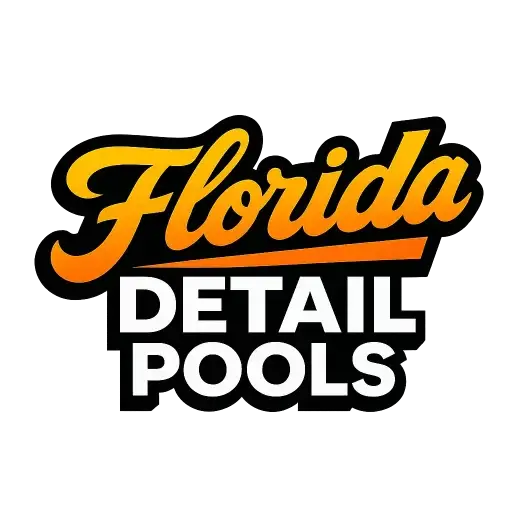Living in Florida means enjoying sunny days, backyard barbecues, and refreshing pool dips. But it also means preparing for hurricane season—a time when high winds, flooding, and flying debris can cause serious damage to your pool and equipment. In Port Charlotte, Punta Gorda, North Port, Rotonda, and throughout Charlotte County, homeowners face this challenge every summer.
The good news? With proper preparation, you can protect your pool equipment and minimize costly repairs. Below, we’ll walk through seven proven strategies that pool owners across Southwest Florida can use to safeguard their investment.
Why Pool Equipment Protection Matters
Your pool equipment—pumps, filters, heaters, and chlorinators—are the “heart and lungs” of your swimming pool. Without them, your pool can quickly become unusable. During hurricanes, these systems face:

- Electrical damage from surges and flooding.
- Physical damage from wind-blown debris.
- Contamination from dirty stormwater, algae growth, and bacteria.
- Costly replacements that could easily reach thousands of dollars.
A little preparation before storm season saves money, stress, and downtime later.
1. Disconnect and Store Electrical Equipment
Before a storm, turn off the power at the breaker to all pool equipment. This prevents electrical surges and protects against water damage.
- Unplug pool pumps, heaters, and chlorinators.
- Store smaller electronics (like timers and automated system controllers) indoors.
- Consider installing a surge protector designed for pool equipment.
⚡ Pro Tip: If you live in Port Charlotte or Punta Gorda, where power surges are common after storms, a whole-home surge protector is worth the investment.
2. Secure the Pool Pump and Filter System
Most pumps and filters are too heavy to move, but they should still be secured.
- Use weatherproof covers to protect them from flying debris.
- Anchor any lightweight attachments to the concrete pad.
- Ensure drainage around the equipment pad is clear to prevent flooding.
📍 In low-lying areas like North Port and Rotonda, flooding is a frequent concern. Adding a raised platform for your equipment could be a long-term solution.
3. Protect Pool Heaters and Salt Cells
Pool heaters and saltwater chlorinators are especially vulnerable to water damage.
- Cover them with waterproof tarps but allow ventilation to prevent overheating.
- Remove the salt cell and store it indoors if possible.
- Shut off the gas supply line for gas heaters.
4. Remove Loose Items Around the Pool
Patio furniture, umbrellas, toys, and pool cleaning tools can become projectiles in hurricane-force winds.
- Store them inside a garage or shed.
- Don’t sink furniture into the pool—it can damage pool surfaces and tile.
- Secure heavy items that can’t be moved with bungee cords or straps.
🌴 Charlotte County residents know that one flying lounge chair can cause thousands of dollars in damage to both your pool and home.
5. Balance Pool Chemistry Before the Storm
Storms bring dirt, bacteria, and algae spores into your pool. Balancing your water chemistry beforehand helps minimize contamination.
- Shock the pool with chlorine 24 hours before the storm.
- Adjust pH to 7.4–7.6.
- Add algaecide as an extra layer of defense.
✅ This simple step reduces cleanup time and protects surfaces like tile and grout from staining.
6. Avoid Draining Your Pool Completely
Many Florida homeowners make the mistake of draining their pool before a storm. However, this can backfire:
- Empty pools can “float” out of the ground due to hydrostatic pressure.
- A full pool adds weight, reducing the chance of structural damage.
Instead, lower the water level by 1–2 feet. This prevents flooding without risking your pool shell.
7. Schedule Post-Storm Service Quickly
After the storm passes, professional help ensures your pool is safe and functioning properly.
- Inspect pumps, filters, and heaters for water or electrical damage.
- Test water chemistry immediately to prevent algae growth.
- Clean out debris from skimmers, drains, and vacuum lines.
Many homeowners in Punta Gorda and Port Charlotte schedule service ahead of time with trusted local providers to ensure they’re first in line once the storm clears.
Real-Life Example from Charlotte County
During Hurricane Ian, many pool owners in North Port and Rotonda learned firsthand how unprepared equipment could lead to disaster. Pumps submerged in floodwater required full replacements, while others who prepped with surge protectors and equipment covers were able to resume swimming within days.

Final Checklist Before a Storm
- ✅ Turn off breakers and disconnect electrical equipment
- ✅ Cover and secure pumps, filters, and heaters
- ✅ Store or tie down loose furniture and tools
- ✅ Shock and balance the pool water
- ✅ Lower water level slightly (don’t drain completely)
- ✅ Schedule post-storm inspection and cleaning
Helpful Resources for Pool Owners
- Florida Detail – Your trusted directory for pool care in Charlotte County.
- Learn more about pool cleaning in Charlotte County and how experts handle post-storm recovery.
- Visit https://FloridaDetail.com for quick access to local pool services.
- Local providers like PortCharlottePoolService.com and NorthPortPoolCompany.com are great options to bookmark.
- For marketing resources and small business tips, check out UnlimitedManiac.com.
Conclusion: Stay Storm-Ready, Stay Pool-Ready
Protecting your pool equipment during hurricane season is about preparation, not panic. With a clear plan, you can safeguard your investment, minimize downtime, and return to enjoying your pool sooner.
Whether you live in Port Charlotte, Punta Gorda, North Port, or Rotonda, now is the time to prepare. Visit Florida Detail to explore trusted local pool service providers who can help you weather the storm and keep your backyard oasis in perfect shape year-round.
✅ Would you like me to also generate the SEO meta description (150–160 characters) for this blog, optimized for Google results?
